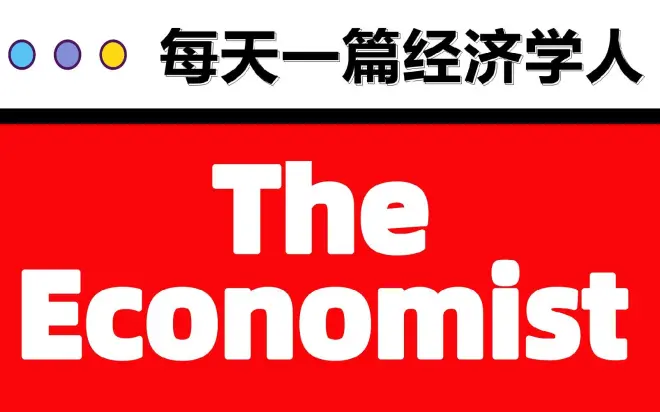每天一篇经济学人 | Higher education 高等教育(2022...

More than a million English students take out a student loan each year. But for the past decade the term “student loan” has been a misnomer. For most, the agreement works more like a graduate tax with an expiry date. Graduates pay 9% of their earnings above a certain threshold (currently £27,295, or $34,695, a year) towards repaying their debt. Anything still owing after 30 years is written off.
每年有100多万英国学生申请学生贷款。但在过去的十年中,“学生贷款”一词一直是用词不当。对大多数人来说,这份协议更像是有期限的毕业税。毕业生在一定门槛(目前为每年27295英镑或34695美元)以上的收入中,有9%要用于偿还债务。30年后仍欠下的债务将注销。
From September 2023 this system is set to change. The Department for Education (DFE) announced a suite of reforms earlier this year. They range from the eye- catching (forgiving the debt after 40 years rather than 30) to the wonkish (lowering the earnings threshold and changing the way it is indexed). Taken together, they amount to the biggest overhaul of student finance since tuition fees were tripled in 2012. Ben Waltmann of the Institute for Fiscal Studies, a think- tank, estimates that under the new system, nearly three- quarters of graduates will repay their debt in full, up from only a quarter under the old one.
从2023年9月起,这一体系将发生变化。今年早些时候,教育部宣布了一系列改革措施。从引人注目的(在40年后而不是30年后免除债务)到古怪的(降低收入门槛并改变其指数化方式)。总的来说,这是自2012年学费翻了两番以来,对学生财务的最大改革。智库财政研究所(Institute for Fiscal Studies)的本·沃尔特曼(Ben Waltmann)估计,在新制度下,近四分之三的毕业生将全额偿还债务,而旧制度下只有四分之一。
For the cohort starting university next year, the changes will mean a big redistribution of who pays what towards higher education. Less punitive interest rates for higher earners mean that those in the top decile of lifetime earnings can expect to pay back £25,000 less than under the current arrangement. Meanwhile, the extended repayment term and the lower earnings threshold mean that lower and middle earners will pay more: around £30,000 more for those in the third income decile.
对于明年开始上大学的学生来说,这些变化意味着高等教育费用的重新分配。对高收入者惩罚性较低的利率意味着,那些在一生收入中处于前十分之一的人,预计将比目前的安排少偿还2.5万英镑。与此同时,还款期限的延长和收入门槛的降低意味着中低收入者将支付更多:收入第三高的人群将多支付约3万英镑。
The reforms have much to recommend them. There is some evidence that the prospect of taking on debt has a deterrent effect on people from poorer backgrounds who are considering going to university. But the earnings threshold continues to protect people from repayments until they are pocketing a certain wage. Taxpayers will save £2.8bn for each university cohort. Incentives change in good ways: encouraging students to pick subjects that will increase their lifetime earnings is in both their and the economy’s interests.
这些改革有很多可取之处。有证据表明,债务的前景对那些考虑上大学的贫困家庭的人有威慑作用。但收入门槛继续保护人们,直到他们有了一定的工资。纳税人将为每个大学毕业生节省28亿英镑。激励机制正在以良好的方式改变:鼓励学生选择能够增加终生收入的学科,这既符合学生自身利益,也符合经济利益。
But the changes fail to fix some big shortcomings in the current set- up. Mr Waltmann points out that maintenance support, loans to help pay for living costs, is now falling fast in real terms. Payments are based on old forecasts of retail price index (RPI) inflation that underestimated how quickly the index would rise. He calculates that students from the poorest families will receive £100 a month less than they would have done had their support been linked to actual RPI inflation. At the same time, interest rates for existing borrowers are set to soar in September. Although the DFE must cap these in line with commercial rates, it typically does so with a six- month delay. For higher earners, that implies half a year of paying 12% interest, nearly double the commercial rate.
但这些变化并没有解决当前设置中的一些重大缺陷。沃尔特曼指出,用于支付生活费用的维修支持贷款的实际价值正在快速下降。付款基于对零售价格指数(RPI)通胀的旧预测,该预测低估了该指数的上升速度。他计算出,来自最贫困家庭的学生每月将获得100英镑的收入,比他们的支持与实际的RPI通胀挂钩时要少。与此同时,现有借款人的利率将在9月份飙升。尽管DFE必须根据商业利率对其进行限制,但通常会延迟六个月。对于收入较高的人来说,这意味着半年要支付12%的利息,几乎是商业利率的两倍。
Worse, as well as changing the rules for future students, the reforms also rewrite repayment terms for the roughly 3.5m people who have taken out loans since 2012. A frozen earnings threshold will increase their monthly repayments from this September, just as the rising cost of living really starts to bite. Linking this threshold in the future to the RPI, a flawed measure of inflation that is set to be reformed, bakes in further uncertainty. These changes do not just hurt existing borrowers in every earnings decile, but also risk deterring future students. Why take out a loan if the terms can change whenever the government wants?
更糟糕的是,除了改变未来学生的规则外,改革还改写了自2012年以来约350万人的还款条件。冻结的收入门槛将增加他们从今年9月开始的每月还款,而与此同时,生活成本的上升真的开始产生影响。将未来的这一门槛与RPI联系起来,RPI是一个有缺陷的通胀衡量指标,即将进行改革,这会带来进一步的不确定性。这些变化不仅损害了收入十分之一的现有借款人,还可能阻碍未来的学生。如果条件可以随时改变,为什么还要贷款呢?

